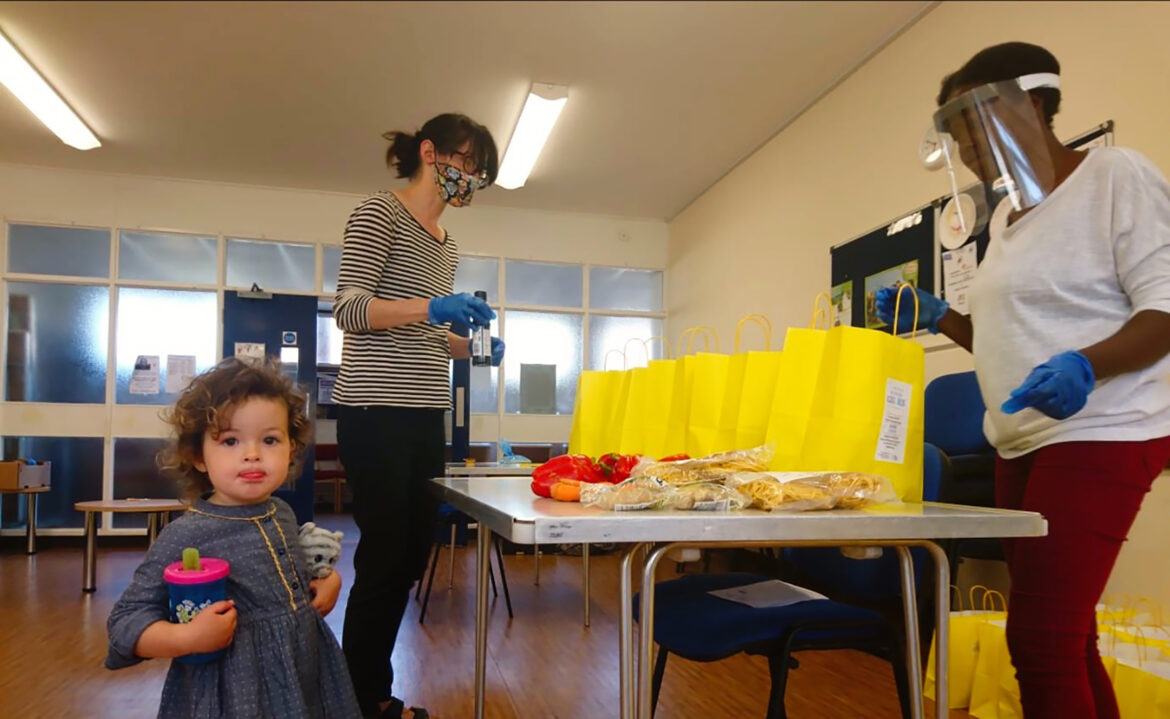DORSET Community Foundation’s report into its response to the pandemic has praised the work of thousands of volunteers and charity organisers for the work they did to keep the county safe.
The Dorset In The Pandemic report records the impact made by its £1.1 million Dorset Coronavirus Community Fund, which made 328 grants to 220 groups,.
The fund was launched on March 19, 2020, ten days after the first Covid cases were recorded in the county and two days before the first death. Working with the National Emergencies Trust, which was spearheaded by Prince William, the community foundation quickly funnelled money to the Covid response groups emerging in communities, with the first grants made on April 6.
Jeremy Mills, the community foundation’s chairman of trustees, writes in the report: “These last 12 months have, without doubt, been a time of uncertainty, anxiety, sadness and disruption never seen on such a scale in this country outside of wartime.
“However they have also brought out the very best in us as a people and in Dorset we have seen charities and voluntary groups step up despite losing staff and revenue, people who would never have imagined themselves volunteering coming forward to help their communities and new groups materialising to meet the need on their doorstep.
“I am proud that Dorset Community Foundation has stood squarely at the forefront of this effort.”
Community foundation staff streamlined its grants application and assessment process so that the money pouring into its fund from individual donors, trusts and businesses could be turned round quickly.
Director Grant Robson said: “Our trustees and volunteers really came through for us in helping to make quick decisions without sacrificing the integrity of the process.”
The report details how the money was distributed, including £345,000 to groups providing hot meals and food, £126,000 to those dealing with mental health, £117,000 for youth groups and £106,000 for financial advice and support from groups such as Citizens Advice.
I am proud that Dorset Community Foundation has stood squarely at the forefront of this effort.
Grants were made in four phases between April and this February, with £197,197 going out at its peak in September.
“We were bowled over that donors we had known for many years, as well as lots of new ones, came forward to help. We reached out to some but many came to us wanting to respond to the pictures they were seeing on TV and in newspapers,” said Mr Robson.
The report also includes tales from many of the groups who were funded on how they tackled the crisis. Lychett Minster and Upton Town Council, which used a £3,000 grant to set up a foodbank, wrote: “One lady in her 80s rang is because she had run out of tea. “She said she didn’t like to trouble anyone, but she hadn’t had a cup of tea for a week.”
The Crumbs Project in Bournemouth, which received £4,000 to deliver hot meals, said one beneficiary who was shielding at home in Poole told it: “Before I found you I had gone without a hot meal for three days.”
Mr Robson said: “We are very proud of the report because it shows not just how we responded but how Dorset and its incredible voluntary sector stepped up. Because of the generosity of our donors and supporters we were able to fund groups responding to the immediate need of the crisis as well as those who were forced to adapt to the lockdown by switching their services online and had to find the money for equipment and training.”
Mr Mills added: “When we eventually look back at this tumultuous time, we will remember the heroism and dedication of our frontline workers who stood firm and steadfast in the teeth of this crisis. The voluntary sector deserves to be heralded alongside them.”
Read the report here.

